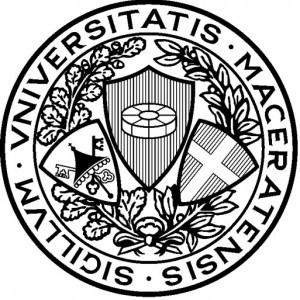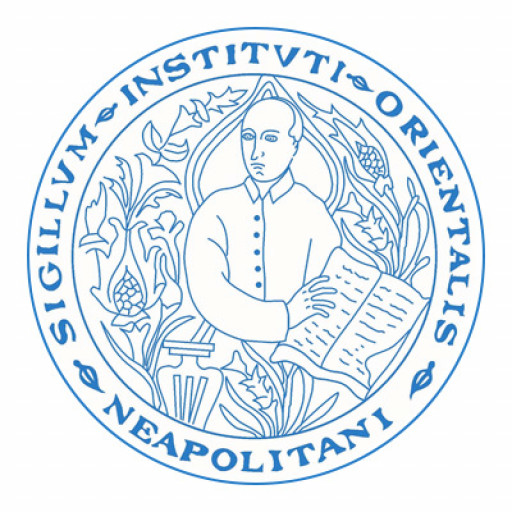Photos of university / #universitatvalencia
The Master's Degree in History and Identities in the Western Mediterranean (15th to 19th Century) offered by the University of Valencia provides a comprehensive and in-depth exploration of the historical developments, cultural transformations, and identity formations within the Western Mediterranean region during the early modern period. This program is designed to equip students with a thorough understanding of the socio-political, economic, religious, and cultural dynamics that shaped the modern landscape of the Western Mediterranean from the late Middle Ages through the 19th century.
Throughout the coursework, students will analyze a wide range of historical sources, including manuscripts, official documents, and archaeological findings, to develop critical skills in historical interpretation and methodology. The curriculum emphasizes interdisciplinary approaches, combining history with perspectives from anthropology, sociology, and cultural studies, to offer a nuanced understanding of the complex identities in the region. Topics covered include the rise and fall of maritime empires, the impact of the Reconquista, the Ottoman influence, trade networks, colonial encounters, and the socio-cultural interactions among diverse peoples such as Spaniards, Arabs, Berbers, Turks, and others.
The program also pays particular attention to the concepts of cultural identity, religious coexistence and conflict, and the processes of nation-building and regional integration. Graduates will gain the ability to analyze historical phenomena through multiple lenses and to understand the contemporary implications of historical identity formation in the Western Mediterranean. The Master's degree prepares students for careers in academia, research, heritage management, cultural policy, and education, among others.
With a dedicated team of experienced faculty members specialized in Mediterranean history, the programme offers a range of seminars, workshops, and fieldwork opportunities designed to foster active learning and research skills. Students are encouraged to undertake original research projects culminating in a master's thesis that contributes to current debates in Mediterranean and identity studies. In summary, this program offers a rigorous and engaging scholarly experience for those interested in understanding the complex historical realities that have shaped the Western Mediterranean's unique cultural and social landscapes from the 15th to the 19th centuries.
Compulsory subjects
- Productive activities and commercial networks in the western mediterranean
- Sources, palaeography and introduction to the job of a historian
- Historians and historiography of the western mediterranean in the modern age
- Political institutions and territorial power
- Hierarchy and social dynamics
- Religions and cultural circulation
- Master's final project
Elective Subjects
- Creation and transfer of knowledge
- Mediterranean sea: an area for exchanges
- The rural world
- Spirituality, orthodoxy and control of consciences
- Feminine/Masculine: identities, relations, functions
- War and society
- Territorial and Nnational identities in the western mediterranean
- Mediterranean town
- Minorities, dissents and rebelliousness
- Historical landscape, risk and natural environment
- Power systems and political thought
The previous academic training most appropriate are the Undergraduate degree in History, History and Heritage and Humanities: Intercultural studies, and other studies in which Modern History has a strong presence in its curriculum. The graduates in Humanities, Geography and History (section of history) and Philosophy and Humanities of the former curriculums, previous to the implementation of Undergraduate studies are equally considered.
For the graduates of other studies, the Master’s Degree Coordinating Committee, after analysing the curriculum vitae of the applicants (including, in this case, a personal interview), will establish the bridging courses that the students have to pass in advance.
For the graduates of other studies, the Master’s Degree Coordinating Committee, after analysing the curriculum vitae of the applicants (including, in this case, a personal interview), will establish the bridging courses that the students have to pass in advance.
Likewise, and according to the Royal Decree 1892/2008, 14 November, which regulates the entry conditions to the university official teachings for Undergraduate Studies and the admission procedures to the Spanish public universities, a 5 per cent of the available places will be reserved for students with at least 33 per cent incapacity, as well for these students with permanent special educational needs associated to personal circumstances of incapacity, who during their schooling have needed resources and supports for the normal fulfilment of their academic life.
The Master’s Degree Coordinating Committee will admit the students pre-registered in the Master’s applying the following criteria " 60%: curriculum vitae (the students will be selected according their academic record and in their assessment will be specially considered if they have take subjects related to the content of the Master’s); 40% assessment, by the committee mentioned above, in a written report explaining the reasons and training goals for applying to the Master’s, related with the academic record or professional career of the applicants.
This report should be structured in two sections:
1.Reasons for choosing the Master’s in relation to the curriculum submitted (Priority reasons with respect to other Master’s; justification of the subjects passed in the degree in relation to the Master’s orientation; professional justification with the Master’s requested;...)
Up to 30% of the total assessment is reserved for the Report
2.Training goals
• Training for Research (in this case the topics of interest should be indicated)
• Ongoing Training for professional activities
Other training goals
Up to 70% of the total assessment is reserved for the Report
The financing of the "History and Identities in the Western Mediterranean (15th to 19th C.)" program at the University of Valencia is primarily supported through a combination of public funding, tuition fees, and research grants. As a public university in Spain, the University of Valencia receives substantial financial resources from the Spanish government and regional authorities to ensure the continuity and quality of its academic offerings, including this specialized history program. These funds are allocated to cover faculty salaries, administrative expenses, instructional materials, and infrastructural investments necessary for delivering high-quality education.
In addition to government support, tuition fees paid by students constitute a significant source of funding for the program. Spanish university students contribute to the financial stability of the university through these payments, which are regulated by national and regional policies. The tuition fees vary depending on the program level (undergraduate or postgraduate), residency status, and the number of credits enrolled each academic year. International students, if applicable, may pay higher fees but also contribute notably to the program’s revenue.
Research grants and project funding play an essential role in financing activities related to this specialization. The university actively seeks funding from national agencies such as the Ministry of Science and Innovation, regional institutions, and the European Union to support research projects, academic exchanges, and other scholarly activities. These grants often focus on historical studies, cultural identities, and Mediterranean history, aligning well with the program’s thematic focus.
Furthermore, the university promotes collaborations with cultural institutions, museums, and research centers, which may provide additional financial resources or in-kind support to enhance the program’s offerings. Scholarship programs for students with outstanding academic records or financial need help to attract talented individuals and ensure the program remains accessible to a diverse student body.
In summary, the program’s financing is characterized by a diversified portfolio of funding sources. Public funding ensures baseline operational costs, tuition fees contribute to both operational and infrastructural expenses, and research grants enable scholarly activities and international cooperation. This multi-faceted financial structure allows the University of Valencia to maintain a comprehensive and high-quality curriculum on the history and identities of the Western Mediterranean from the 15th to the 19th centuries.
The Bachelor's Degree in History and Identities in the Western Mediterranean (15th to 19th Century) offered by the University of Valencia is a comprehensive program designed to provide students with an in-depth understanding of the historical developments, cultural transformations, and social dynamics that shaped the Western Mediterranean region during the Early Modern period. This program emphasizes the analysis of historical identities, including national, cultural, religious, and social identities, and their evolution over centuries marked by significant political upheavals, economic changes, and cultural exchanges among diverse civilizations.
Students enrolled in this degree will explore a wide range of topics such as the rise and fall of empires, the expansion of maritime trade, the influence of religion and ethnicity in shaping societies, and the impact of colonialism and migration. The curriculum integrates a multidisciplinary approach, combining history, anthropology, and regional studies, to enable students to critically examine sources and interpret historical phenomena within their specific contexts.
The program aims to develop analytical and research skills that prepare graduates for careers in academia, museums, cultural management, public history, and international organizations. Moreover, it fosters a deep appreciation of the rich cultural heritage of the Western Mediterranean, encouraging students to understand the complex interactions and mutual influences among the region's diverse populations. The degree is structured to include theoretical coursework, practical seminars, and opportunities for fieldwork, enabling students to connect historical knowledge with contemporary issues of identity and cultural integration.
Faculty members involved in this program are renowned specialists in Mediterranean history, and they often lead research projects that focus on the early modern period, giving students access to cutting-edge scholarship and resources. The program also offers exchange opportunities with partner universities in Mediterranean countries, enriching the learning experience through cross-cultural dialogue and field studies. Graduates of this program are equipped with a solid foundation in historical analysis and an understanding of the multifaceted identities that have historically characterized the Western Mediterranean, positioning them for further academic pursuits or careers in relevant sectors.
Overall, this program prepares students to critically analyze historical narratives and contemporary debates surrounding identity, migration, and intercultural relations within the context of the Western Mediterranean's complex history from the 15th to the 19th century. It fosters both specialized knowledge and transferable skills vital for engaging with global and regional challenges related to history and cultural understanding.








